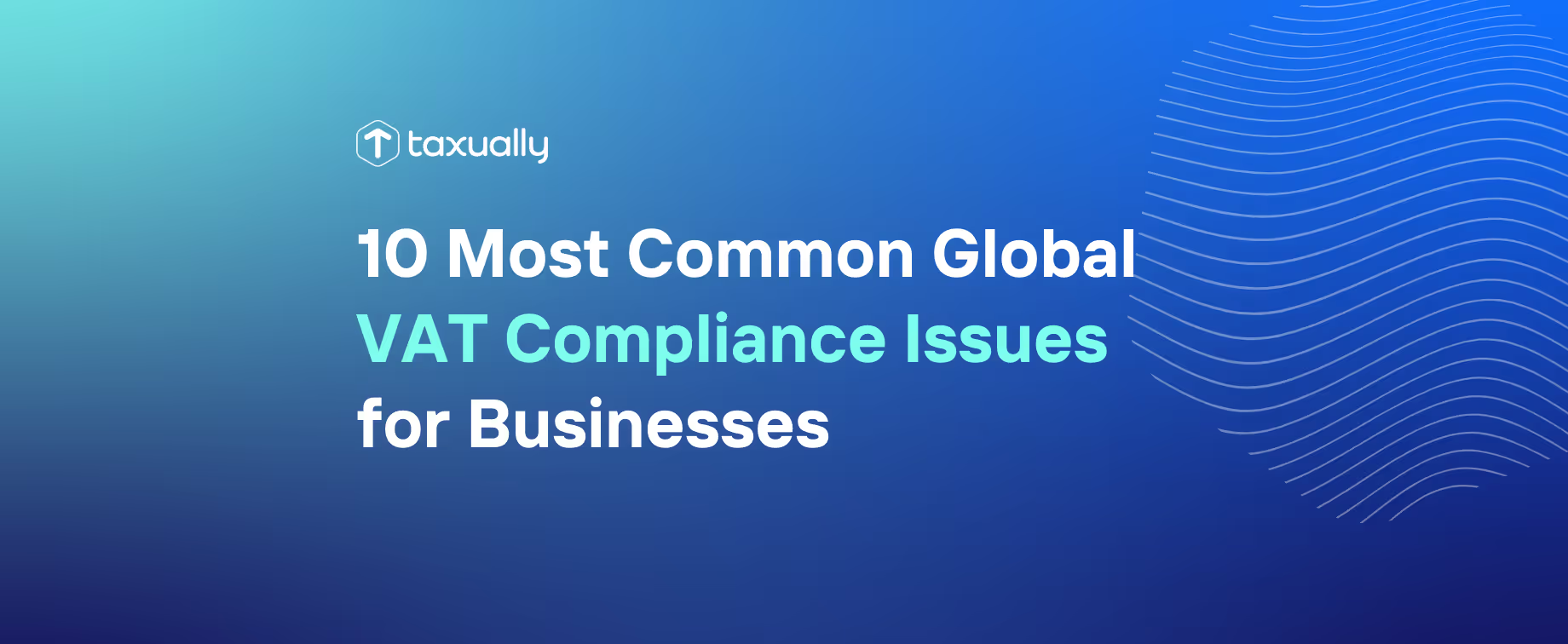Key takeaways
- VAT rules vary widely by country, making it essential to understand local regulations, thresholds, and invoice requirements.
- Cross-border and ecommerce transactions add complexity, especially with reverse charge rules and digital sales obligations.
- Accurate records and timely filings are crucial—errors or delays can lead to denied deductions, fines, and reputational harm.
In today's global marketplace, businesses expanding beyond their domestic borders face an intricate web of VAT (Value-Added Tax) compliance challenges. VAT, a consumption tax levied on goods and services at each stage of the supply chain, varies significantly across different jurisdictions. Failure to comply with these regulations can result in hefty penalties, legal issues, and damage to a company’s reputation. This article outlines the 10 most common global VAT compliance issues that businesses encounter and offers insights into navigating these complex waters.
1. Understanding local VAT regulations
VAT regulations are not only complex but also highly variable across different countries. This variability includes differing VAT rates, what goods and services are taxable, and exemption conditions. Businesses must not only familiarize themselves with these regulations before entering a new market but also keep abreast of changes to remain compliant.
2. Registration thresholds
VAT registration thresholds are a pivotal aspect of compliance. For instance, the European Union has specific thresholds for intra-community sales, while countries outside the EU might have different criteria for foreign businesses. Misjudging these thresholds can lead to unregistered trading and significant fines.
3. Accurate VAT calculation

The correct application of VAT rates is crucial and often complicated by the variety of rates applicable to different goods and services within the same country. Special rules may apply to products like alcohol, tobacco, and luxury items, or to services such as digital services, requiring businesses to meticulously categorize their offerings.
4. Filing and payment deadlines
Timeliness in VAT filing and VAT payments is critical. Each jurisdiction has its own set of rules regarding when and how often VAT returns must be submitted, which can vary from monthly to annually. Failure to comply with these timelines can result in fines and compound interest on owed taxes.
5. Invoice requirements
Invoice compliance is a detailed aspect of VAT regulation, requiring specific information to be present on invoices, such as VAT identification numbers, detailed descriptions of goods and services, and the applicable VAT rate. Non-compliance can result in the disallowance of VAT deductions and lead to penalties.
6. International transactions
Navigating the VAT implications of cross-border transactions is complex, particularly with the existence of various schemes like the reverse charge mechanism in the EU, which shifts the VAT payment responsibility. Understanding these rules is vital to prevent double taxation or non-compliance.
7. Ecommerce VAT compliance
The ecommerce sector faces unique VAT compliance challenges, especially with jurisdictions updating VAT laws to capture revenue from digital sales. This includes obligations to register and remit VAT in the buyer's country, presenting a significant compliance burden for online retailers.
8. Reclaiming VAT
VAT reclaim processes can be cumbersome, often involving detailed documentation and strict deadlines. Many businesses lose out on significant amounts due to non-reclamation of VAT on eligible expenses like travel, entertainment, and cross-border transactions.
9. Documentation and record keeping

Maintaining accurate and comprehensive records is a cornerstone of VAT compliance. This not only includes sales and purchase invoices but also import/export documentation and VAT accounting records. Poor record-keeping can lead to inaccurate VAT filings and difficulties in defending against audits.
10. Staying updated on VAT changes
VAT laws are dynamic, with rates, regulations, and thresholds subject to change. Staying informed is critical for compliance, requiring businesses to continually monitor legal updates across all jurisdictions in which they operate. This can be particularly challenging for businesses with a global presence.
Strategies for effective VAT compliance management
Investing in specialized VAT compliance software can automate many aspects of VAT calculation, reporting, and filing, reducing the risk of human error. Additionally, consulting with VAT experts, especially when entering new markets or dealing with complex transactions, can provide invaluable insights and guidance.
Ultimately, effective VAT compliance is not just about avoiding penalties; it's about creating a solid foundation for international business operations. By understanding and proactively managing these common VAT issues, businesses can ensure smoother operations, maintain their reputations, and focus on growth and development in the global marketplace.
Do you need help with your VAT compliance? Book a free call with one of our VAT experts to find bespoke solutions for your business, optimize your VAT costs, and reach millions of new potential customers.
Frequently asked questions
New Year's Day - 1/1/2024Memorial Day - 5/27/20244th of July - 7/4/2024Labor Day - 9/2/2024Thanksgiving Day - 11/28/2024Day after Thanksgiving - 11/29/2024Christmas Eve - 12/24/2024Christmas Day - 12/25/2024
Why is VAT compliance so challenging for global businesses?
Because VAT rules, rates, and exemptions differ in every country. Businesses must understand each jurisdiction’s local requirements to avoid costly penalties and ensure correct VAT registration, filing, and invoicing.
What are the most common VAT compliance mistakes?
Frequent issues include late filings, incorrect VAT calculations, missing registration thresholds, non-compliant invoices, and poor record-keeping. These can lead to audits, fines, or denial of VAT reclaims.
How can businesses simplify global VAT compliance?
Using VAT automation software helps manage multi-country filings and calculations. Partnering with tax experts and staying updated on VAT law changes are also key to maintaining compliance across borders.



















